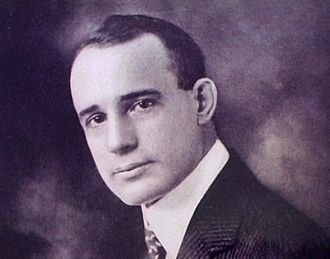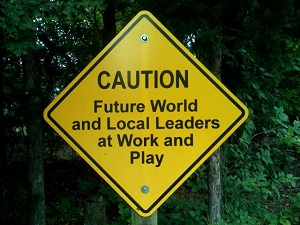Recently I posted a list of books that are most recommended to read by famous and highly successful people. I started reading one of them: Think and Grow Rich by Napoleon Hill. What is interesting about this book, it was written almost a century ago in the midst of the Great Depression. You actually could feel this time reading the book. However, a lot of advice from the book is still perfectly relevant.
Preparing his book Napoleon interviewed more than 500 successful men and women (many of them millionaires) including Henry Ford, Andrew Carnegie and even two presidents of the USA. He believed that the process of success could be outlined in a simple formula that anyone would be able to understand and achieve. So, the book is the result of his investigation.


Main ideas
- You should have a definite ambitious goal
- You should have (and train) faith that you are able to achieve the goal
- You should have a definite plan how to achieve it
- If one plan did not work, create and use the next one
- Every defeat is just a temporary one
I agree with the majority of the points stated in the book. However, I don’t like the idea that getting money is above any other goal. I would say the opposite. If you have a clear definite goal that will bring value to other people, reaching it will give you money as one of the rewards.
Who are the leaders?
I found very interesting the chapter about leadership. Why some persons are leaders, whereas others just are followers? Leaders are around us. They are the most successful people in any walk of life. Think about your profession. Who of your colleagues is a leader and why?
Napoleon interviewed many leaders, investigated their qualities and crystallized his knowledge in two lists. The first is a list of qualities any leader should possess and the other is a list of qualities that a leader should get rid of. I agree with all the items in both lists. Remember that each leader at the beginning was a smart follower.
The major attributes of leadership
- Unwavering courage. No follower wishes to be dominated by a leader who lacks self-confidence and courage.
- Self-control. The man who cannot control himself can never control others.
- A keen sense of justice. Without a sense of fairness and justice, no leader can command and retain the respect of his followers.
- Definiteness of decision. The man who wavers in his decisions, shows that he is not sure of himself.
- Definiteness of plans. The successful leader must plan his work, and work his plan.
- The habit of doing more than paid for. One of the penalties of leadership is the necessity of willingness to do more than it is required of the followers.
- A pleasing personality. No slovenly, careless person can become a successful leader. Leadership calls for respect.
- Sympathy and understanding. The successful leader must be in sympathy with his followers and understand them.
- Mastery of detail. Successful leadership calls for mastery of details of the leader’s position.
- Willingness to assume full responsibility. The successful leader must be willing to assume responsibility even for the mistakes of his followers.
- Cooperation. The successful leader must understand, and apply the principle of cooperative effort and be able to induce his followers to do the same.
The major causes of failure in leadership
- Inability to organize details. The successful leader must be the master of all details connected with his position and must acquire the habit of relegating details to capable lieutenants.
- Unwillingness to render humble service. Truly great leaders are willing, when occasion demands, to perform any sort of labor which they would ask another to perform.
- Expectation of pay for what they “know” instead of what they do with what they know. The world does not pay people for what they know. It pays them for what they do.
- Fear of competition from followers. Leaders who fear that one of their followers may take their position is practically sure to realize that fear sooner or later.
- Lack of imagination. Without imagination, the leader is incapable of meeting emergencies.
- Selfishness. The really great leader claims none of the honors.
- Intemperance. Intemperance in any of its forms destroys endurance and the vitality of all who indulge in it.
- Disloyalty. Disloyalty marks one as being less than the dust of the earth.
- Emphasis on the “authority” of leadership. If a leader is a real leader, he will have no need to advertise that fact except by his conduct.
- Emphasis of title. The people who make too much over their title generally have little else to emphasize.
Think about the qualities you can improve and become a better professional.
Bye!
